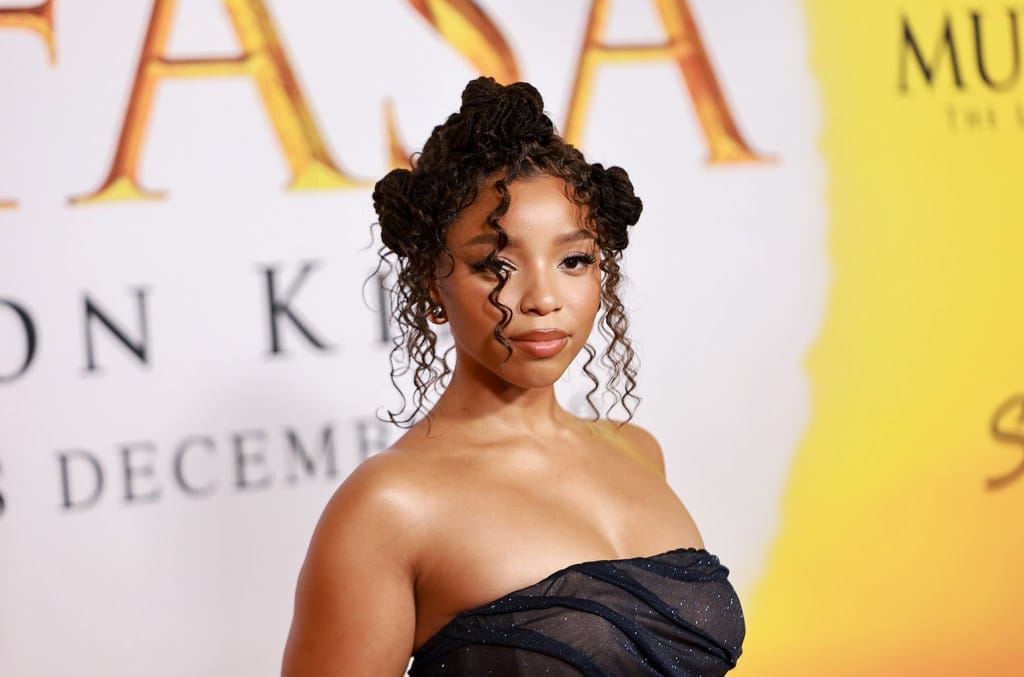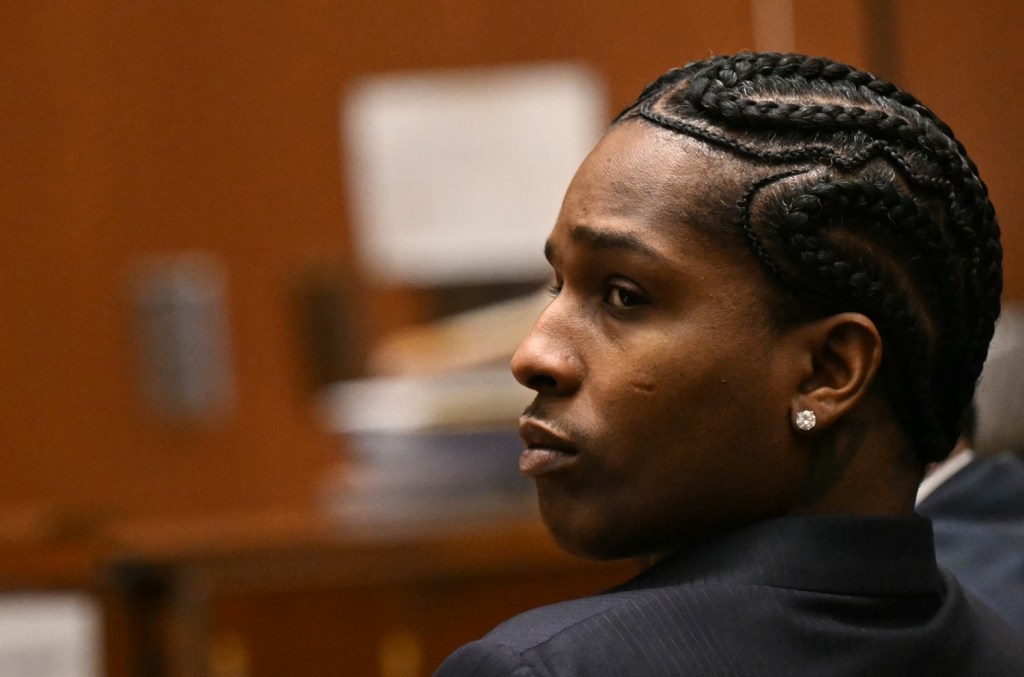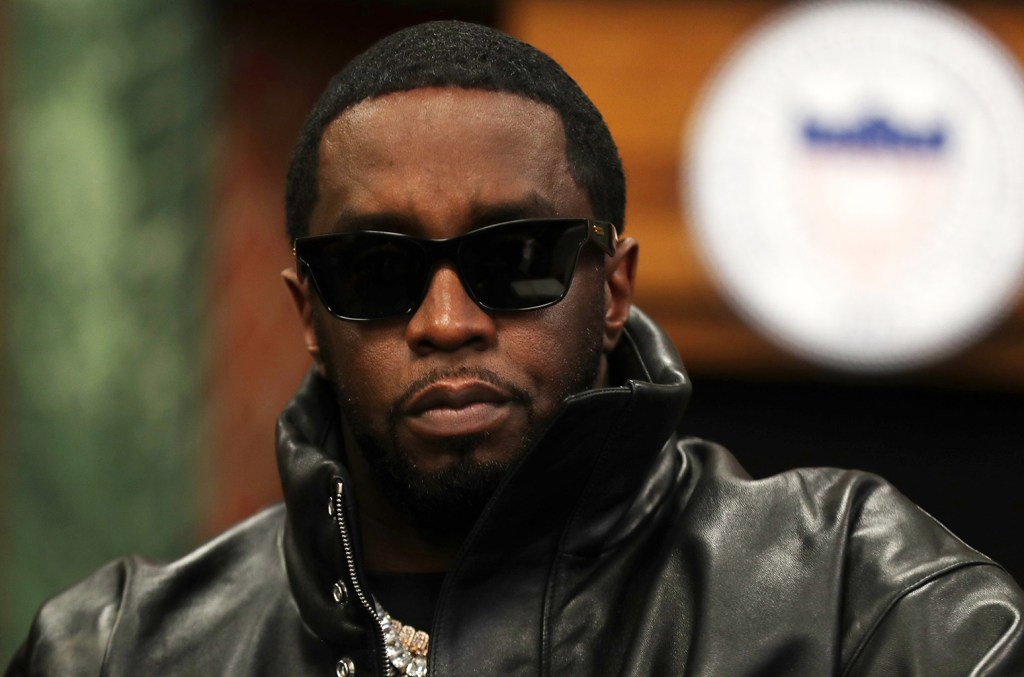Legal News
Page: 29
A woman has sued 300 Entertainment CEO Kevin Liles for allegedly harassing and raping her while the two worked together at Def Jam in the early 2000s, according to documents filed in New York Supreme Court on Wednesday (Feb. 26).
Filed by attorneys Lucas Franken and Mallory Allen at New York firm Pfau Cochran Vertetis, the suit claims that Liles began sexually harassing the woman — identified as Jane Doe in the complaint — beginning in 2000, shortly after she started working as the executive assistant to Def Jam’s then-GM. During this time, she alleges that Liles — who was then serving as president of the storied hip-hop label — “pressed his body” against her breasts, grabbed her buttocks and made “sexually inappropriate comments and advances towards her on numerous occasions, “which she rebuffed.”
The woman claims this behavior ultimately culminated in Liles sexually assaulting and raping her.
Also named as defendants are Def Jam and its corporate parent Universal Music Group, which the woman accuses of “permitting, aiding, abetting, conspiring, ratifying and enabling” Liles’ harassment and rape. The suit alleges that the companies “knew or should have known of” Liles’ alleged propensity for sexual abuse “motivated by gender animus” and are liable for “ignoring, dismissing, and failing to take any action” against him, including by reporting him to the police. It also claims that the companies “permitted” Liles “to entrap their employees in locations that enabled his sexual abuse, assault and rape.”
As a result of the alleged harassment and assault, the woman says she suffered “severe emotional and psychological distress and personal physical injury…including severe mental anguish, humiliation, and emotional and physical distress.”
The lawsuit was brought under the Gender-Motivated Violence Protection Law in New York, which allows survivors of gender-motivated violence whose claims were previously time-barred to file suit against their alleged abusers.
The woman is asking for compensatory and punitive damages, among other relief.
Liles served as president of Def Jam Recordings in the late 1990s and early 2000s before being named executive vp at Warner Music Group. He went on to found the management firm KWL Enterprises in 2009 and, later, record label 300 Entertainment alongside Lyor Cohen, Roger Gold and Todd Moscowitz in 2012. Following 300’s acquisition by Warner Music Group in 2022, he assumed the role of chairman/CEO at 300 Elektra Entertainment. He stepped down from that role in September.
Representatives for Universal Music Group, Def Jam and Liles did not immediately respond to requests for comment.
Sean “Diddy” Combs is the subject of yet another lawsuit, as a male escort has accused the disgraced Bad Boy Records mogul of sexual assault. The victim, who filed in the Southern District of New York as John Doe on Wednesday (Feb. 26) through his attorneys at Eisenberg & Baum, claims Combs sexually assaulted him […]
Just over a week after A$AP Rocky (born Rakim Mayers) was found not guilty on all counts in his 2021 felony shooting case, A$AP Relli (born Terell Ephron) is moving forward with his civil lawsuit against the A$AP Mob frontman.
On Wednesday (Feb. 26), Los Angeles County Superior Court Judge William Fahey lifted a hold on Relli’s assault and battery case against Rocky and set a trial date of Jan. 12, 2026, according to Rolling Stone.
Relli’s lawyer, Melisa Mikhail, reportedly appeared virtually at the hearing and said that her client had no plans of dropping the lawsuit while citing the lower burden of proof in a civil versus criminal court.
Trending on Billboard
“We intend to continue litigating this case,” Mikail said. “The standard in a criminal case is much higher than the preponderance of the evidence standard in a civil matter. We still believe that our claims have merit, and we intend on fully litigating them.”
During the hearing, Rocky’s civil attorney James Sargent reportedly argued that “there’s no longer a basis” for the case. “Mr. Ephron testified in the criminal case as to the facts and circumstances,” Sargent said. “The jury’s acquittal speaks volumes as to how they valued that testimonial evidence.”
The next hearing in the civil lawsuit — which was originally filed in 2022 — is scheduled for May 28. Billboard has reached out to attorneys for both Relli and Rocky for comment.
In both the criminal and civil cases, Rocky is accused of firing a weapon at Relli following a heated confrontation near a Hollywood hotel on Nov. 6, 2021. In the criminal trial, Relli maintained that he was grazed by gunfire, but Tacopina argued that the weapon was in fact a prop gun filled with blanks.
Rocky, who had faced two felony counts of assault with a firearm and a maximum of 24 years in prison in the criminal case, was acquitted by a jury on Feb. 18. Upon the reading of the verdict, the Harlem rapper embraced his attorney and then dove into the gallery to celebrate with his partner, Rihanna. The rapper had earlier turned down a final plea deal ahead of trial that would have resulted in a 180-day jail sentence.
A Missouri woman has pleaded guilty to mail fraud for her role in an alleged scam to steal the Elvis Presley family’s ownership interest in the famed Graceland mansion. Lisa Jeanine Findley, who has gone by various aliases including Lisa Holden and Lisa Howell, initially pleaded not guilty to mail fraud and aggravated identity theft […]
Members of the British band The 1975 cannot be held personally liable for losses of a Malaysian music festival that was shut down by authorities after lead singer Matty Healy kissed a male bandmate on stage, a London judge ruled Monday.
The organizer of the Good Vibes Festival is seeking 1.9 million pounds ($2.4 million) in losses after Healy criticized the country’s anti-homosexuality laws and then kissed bassist Ross MacDonald at the Kuala Lumpur show in July 2023.
Footage of the kiss sparked a backlash in the predominantly Muslim country, where homosexuality is a crime punishable by up to 20 years in prison and caning. Some LGBTQ+ groups also criticized the band for endangering its community and disrupting the work of activists pushing for change.
Trending on Billboard
Future Sound Asia sued The 1975 Productions LLP in the High Court over breach of contract and said its four members owed a duty of care. But the band’s lawyer argued that the suit should only target the company — not the musicians.
Judge William Hansen said the claims against the band members were “bad as a matter of law and that there is no good reason why the matter should go to trial.” He allowed the case to proceed against the company, but ordered FSA to pay 100,000 pounds ($126,000) in legal costs.
Band attorney Edmund Cullen had argued the claim was an “illegitimate, artificial and incoherent” attempt “to pin liability on individuals” because FSA only had a contract with the band’s company.
FSA’s attorney Andrew Burns said authorities had initially refused to let the band perform because of reports about Healy’s drug addiction and subsequent recovery. They relented after the band promised he would follow guidelines and regulations, he said.
When the band played the same festival in 2016, they had agreed not to swear, smoke, drink, take off clothes or talk about religion and politics on stage, Burns said.
Burns said the band deliberately provoked Malaysian authorities in 2023 by smuggling a bottle of wine on stage, and through Healy’s “obscene speech” and the kiss. He said the band also performed a “second-rate set of songs” to upset the crowd.
“They could be argued to have been on a frolic of their own rather than simply acting within the course of their ordinary role as LLP members,” Burns said.
The band was supposed to be paid $350,000 (276,000 pounds) for a one-hour set, Burns said.
The show wasn’t the first time Healy made a political statement in the name of LGBTQ+ rights: he kissed a male fan at a 2019 concert in the United Arab Emirates, which outlaws same-sex sexual activity.
After the show in the Malaysian capital, The 1975 canceled its concerts in Taiwan and Jakarta, Indonesia.
The Malaysian government has blacklisted the band.
This article was originally published by the Associated Press.
Megan Thee Stallion (Megan Pete) and her legal team have been granted permission to depose Tory Lanez (Daystar Peterson) behind bars following a ruling by a federal judge on Monday (Feb. 24). “Plaintiff may take the oral deposition of Daystar Peterson, either remotely via videoconference technology or as otherwise arranged upon agreement with the California […]
Gossip blogger Tasha K has agreed in bankruptcy court to pay Cardi B more than $1 million over the next five years and to not make any “derogatory, disparaging, or defamatory statements” about the superstar.
In court filings Friday (Feb. 21), attorneys for Tasha (Latasha Kebe) offered a plan to resolve her years-long federal bankruptcy case — proceedings made necessary by a $3.9 million judgment for defaming Cardi with outlandish claims of drug use, STDs and prostitution.
The new plan will cover only $1.2 million — less than a third of that fine. But under the terms of the agreement, Tasha will still owe the rest of the damages award even after she finishes the repayment plan: “The Almanzar Claim is non-dischargeable.”
Trending on Billboard
In the first year of the agreement, known as a “plan of reorganization,” Tasha will pay $44,907 per quarter to her unsecured creditors, the vast majority of which will go to Cardi. By year five, those quarterly payments will escalate to $81,057.
In an unusual feature, the bankruptcy plan also includes a non-disparagement clause, barring Tasha not only from defaming Cardi while the plan is in place but also from even mentioning her or any of her family members.
“The Debtor shall ensure that no content related to Ms. Almánzar and/or her family, whether explicitly or implicitly, will be published or disseminated on any of the Debtor’s social media accounts, websites, blogs, or other online communication channels,” her lawyers wrote.
Attorneys for both sides did not immediately return requests for comment.
The filing is the latest wrangling in Cardi’s long-running efforts to collect on the huge 2022 judgment, which came after a federal jury found that Tasha had made false and defamatory statements about the superstar on YouTube and other platforms.
Cardi has repeatedly vowed to recover that money by any means necessary — saying “imma come for everything” and “b—- better have my money.” Tasha filed for Chapter 11 bankruptcy in 2023, saying she still owed $3.4 million to Cardi and had less than $60,000 in assets. But the rapper has pursued her, later winning a ruling that Tasha couldn’t use the bankruptcy process to “discharge” the judgment.
In December, Cardi’s attorneys demanded that the bankruptcy case be dismissed entirely, accusing Tasha of orchestrating a “long-running fraudulent scheme to shield debtor’s assets and income from creditors.” They said she had fraudulently transferred and concealed money and had lied to both Cardi and the federal courts.
“It is clear and irrefutable that debtor has admittedly and repeatedly engaged in bad faith conduct to hinder, delay, and defraud Ms. Almánzar from collecting on the amended defamation judgement,” the star’s lawyers wrote. “This court should not allow debtor to further abuse the bankruptcy process.”
A day after Cardi filed her motion to dismiss, the court-appointed trustee — a neutral third party who helps shepherd a bankruptcy case toward a repayment plan — filed her own motion endorsing Cardi’s arguments and urging the judge to dismiss Tasha’s bankruptcy case.
The threat of such an outcome likely forced Tasha’s attorneys to negotiate Friday’s agreement, avoiding the risk that the bankruptcy would be dismissed entirely.

R&B star Chloe Bailey (performing as Chlöe) has been accused of failing to properly credit and pay a songwriter who worked on her album Trouble in Paradise and of commercially releasing the songs he wrote without his consent, according to court documents filed in the Southern District of New York on Thursday (Feb. 20).
In the lawsuit, filed by attorney Tyrone Blackburn, songwriter Melvin “4rest” Moore alleges that the actions of Bailey, along with her label Parkwood Entertainment and Columbia Records, constitute “copyright infringement, fraudulent misrepresentation, violations of the Digital Millennium Copyright Act (DMCA), civil conspiracy and deceptive business practices.”
According to the complaint, Bailey “fail[ed] to appropriately credit or compensate” Moore in connection with the songs he worked on for Trouble in Paradise — “Favorite,” “Might As Well” and “Same Lingerie” — which Moore says were written about his own “personal and…lived experiences.” It also claims that Moore “did not grant consent to the commercial exploitation of the [songs]” he wrote for Bailey and that he did not get an opportunity to “engage in good-faith negotiations” with Bailey’s team around contractual terms, citing an email from Moore’s attorney to Bailey’s counsel on Aug. 8, 2024.
Trending on Billboard
(Records from ASCAP and BMI’s Songview repertory, which contain official accounts about which writers and publishers worked on a given song, indicate that Moore is listed as a writer for “Same Lingerie” and “Might As Well” but not for “Favorite.”)
The lawsuit calls Bailey, Parkwood and Columbia “modern-day swindlers” and claims that Moore’s attorney “repeatedly made good-faith attempts to amicably resolve the matter of [Bailey, Parkwood and Columbia’s] unauthorized commercial exploitation of the works” over the course of “almost 200 days.”
After not being able to reach an agreement, Moore’s attorney says he issued a DMCA takedown notice, asking for the songs Moore worked on to be removed from the internet. The complaint adds that Moore’s team feels their takedown was “willfully and blatantly ignored.”
Moore is asking for monetary damages up to $150,000 for each intentional violation; a court order to stop further commercial use of the songs; a complete investigation of Bailey, Parkwood and Columbia’s revenue from unauthorized use of the songs; repayment of all profits gained from the songs; a requirement for defendants to publicly retract their claims and properly credit Moore; punitive damages of $5 million per song; and any additional relief the court finds appropriate.
Representatives for Bailey, Parkwood and Columbia Records did not respond to Billboard‘s requests for comment by press time.
One of Sean “Diddy” Combs’ attorneys has filed a motion to step down from representing the incarcerated hip-hop mogul. Per court documents filed in the Southern District of New York on Friday (Feb. 21), Anthony Ricco said that while he had “provided Sean Combs with the high level of legal representation expected by the court, […]
A court in Argentina dropped charges of criminal negligence against three of the five people indicted in connection with the death of Liam Payne, the former One Direction singer who fell from a third-floor hotel balcony in Buenos Aires last October, according to a ruling obtained by The Associated Press.
A preliminary autopsy report cited multiple traumas and hemorrhages as the cause of death, while a toxicology report revealed alcohol, cocaine, and prescription antidepressants in Payne’s system.
Trending on Billboard
The court cleared Esteban Grassi, head receptionist at the CasaSur Hotel, Rogelio Nores, an Argentine-American businessman who accompanied Payne on the trip, and Gilda Martin, the hotel’s manager. Grassi had made two emergency calls prior to the accident, first reporting that a guest was “trashing the entire room” and later expressing concerns that the guest “may be in danger.”
Prosecutors argued that Nores neglected his duty of care by leaving Payne alone while intoxicated, but the court ruled that he had no legal obligation. Martin and Grassi, who had escorted Payne to his room, were also cleared, as the court found insufficient evidence that their actions directly contributed to his fatal fall.
However, two other defendants, Ezequiel David Pereyra, a former hotel employee, and Braian Paiz, a waiter who served Payne at a restaurant, remain in custody. They are charged with supplying narcotics to Payne, an offense that carries a prison sentence of four to 15 years in Argentina. The court justified their continued detention due to the severity of the charges.
In Argentina’s legal system, prosecutors gather evidence for a judge to decide whether a case proceeds to trial.
Payne was laid to rest in November in the U.K., with his funeral attended by his One Direction bandmates, girlfriend Katie Cassidy, and ex-partner Cheryl Cole, with whom he shared a son.

 State Champ Radio
State Champ Radio 








